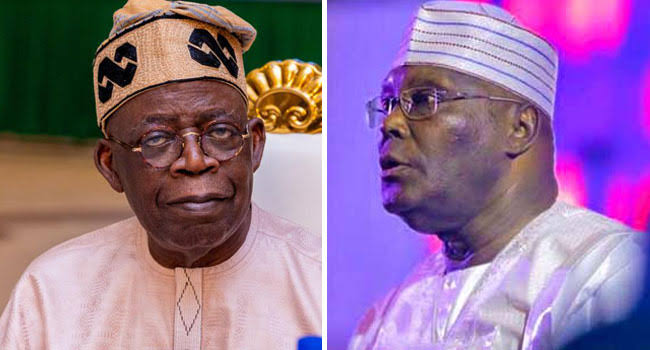A former Chairman at the Nigerian Bar Association, Monday Ubani, has justified why the Supreme Court may not admit fresh evidence in the appeal of the judgment of the presidential election petition tribunal.
Ubani was reacting to the case initiated by the presidential candidate of the Peoples Democratic Party, PDP, Atiku Abubakar in the United States.
Atiku had requested for the release of President Bola Tinubu’s certificate from the Chicago State University with claims that the certificate the President submitted to the Independent National Electoral Commission, INEC may not be authentic.
Speaking on the development on Channels Television’s Sunrise Daily on Thursday, Ubani said, “Looking at the facts surrounding it, the issue of admissibility of fresh evidence by the appellate court is very rare, especially if that evidence was available to you while you were initiating the process.
“The Supreme Court will never, even the Court of Appeal will not admit fresh evidence because their job is to review the decision of the court below and not to now evaluate any evidence.
“They don’t take any evidence but there are special circumstances under which fresh evidence can be admitted by the appellate court and that ground is maybe by the time you file the case that evidence was not available.”
President Tinubu, through his lawyers, resisted Atiku’s demand for his records to be released, but the US court eventually ordered CSU to release the President’s academic records to Atiku, who had told the court he needed them for his appeal in the Supreme Court.
Ubani said it will take a lot from Atiku’s legal team to convince the Supreme Court to admit fresh evidence in the appeal of the election tribunal judgment, as the apex court will only be reviewing the decision of the lower court.
The senior lawyer noted that Atiku’s legal team will be challenged by Tinubu’s team on the issue of admissibility of fresh evidence; adding that the court may be left to use its discretionary power to decide whether or not to admit fresh evidence in the case.
He said, “The issue of admissibility of fresh evidence is very critical, you must convince, and whoever is bringing it will be opposed by the other party. So, the court now exercises what is called discretionary power in either admitting or not allowing that fresh evidence to come in.”
Vanguard









